Hanoi Convention: A Milestone in Multilateral Diplomacy
| VUFO and Vietnamese Representative agencies abroad Strengthening coordination | |
| 10 Years of Vietnam-Singapore Friendship Association: Strengthening Bonds, Advancing Cooperation |
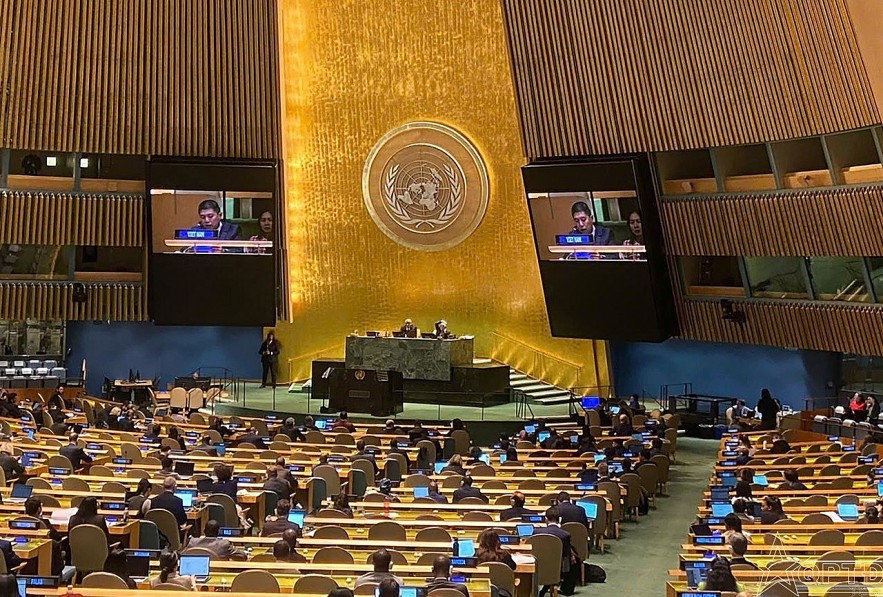 |
| The United Nations General Assembly adopted the “Hanoi Convention” on cybercrime. |
Cybercrime: A Global Challenge
Currently, there is no international consensus on what constitutes cybercrime. The term broadly encompasses a range of online activities, categorized mainly into two types: cyber-facilitated crimes and cyber-dependent crimes.
According to Vietnam's 2018 Law on Cybersecurity, "Cybercrime is the act of using cyberspace, information technology, or electronic means to commit crimes as prescribed in the Penal Code." Thus, cybercrime involves the use of cyberspace, information technology, or electronic means to commit criminal acts. These crimes can cause significant harm to individuals, businesses, and organizations. Forms of cybercrime include unauthorized access to computer systems or data, the spread of malicious code, online fraud, online copyright infringement, cyberattacks, illegal transactions, and other criminal activities conducted via the internet and related systems.
With the rapid advancement of information technology, cybercrime has emerged as a global challenge. The alarming increase in its scale, complexity, and scope is estimated to have caused around $8 trillion in damages to the world economy in 2023, with forecasts predicting this figure to reach $10.5 trillion by 2025—surpassing the GDP of most of the world's largest economies. In the first six months of 2024 alone, the Belgian Financial Market Authority received over 1,300 reports of online fraud, a nearly 50% increase compared to the same period the previous year. A survey released in August indicated that cybercrime cost German businesses approximately $300 billion in the past 12 months, an increase of 29% from the previous year.
In Asia, Malaysia's Digital Ministry reported that the country lost around $700 million to online fraud affecting nearly 96,000 victims between 2021 and April 2024. This figure is likely just the "tip of the iceberg" as many victims hesitate to report incidents to authorities.
Singapore has also noted the increasing complexity of cybercrime, with fraud cases rising by 16.3% year-on-year in the first six months of 2024, resulting in losses nearing $300 million.
In Vietnam, the Vietnam Information Security Warning Portal recorded about 13,900 cyberattacks on agencies, organizations, and businesses in 2023. Nearly 16,000 reports of online fraud resulted in damages exceeding VND 390 trillion (equivalent to 3.6% of GDP). The total amount scammed from individuals was about VND 8,000-10,000 billion, a 1.5 times increase from 2022. Of these cases, 91% were related to the financial sector. Approximately 73% of mobile device and social network users reported receiving scam messages and calls. According to the Ministry of Public Security and the Ministry of Information and Communications, there are currently three main fraud groups—brand counterfeiting, account hijacking, and other combined forms—employing 24 different fraud methods.
Need for a Multilateral Mechanism
In the current context, the international community requires a multilateral legal framework to address cybercrimes. On December 27, 2019, the United Nations General Assembly adopted Resolution 74/247, establishing an Intergovernmental Task Force to explore the possibility of developing a comprehensive international convention against the use of information and communications technology for criminal purposes. The first session of the Task Force was held from February 28 to March 11, 2022, at the United Nations Headquarters in New York, USA. Originally, the process of developing the Convention was expected to conclude in February 2024 after seven sessions of the Task Force. However, discussions were extended until August 2024 to allow more time for countries to deliberate and agree on key issues such as the scope of the Convention, protection of human rights, and the development of an Additional Protocol mechanism.
The draft Convention proposes a comprehensive legal framework for member countries to engage in international cooperation in preventing, investigating, prosecuting, and adjudicating cybercrimes. These crimes include computer system attacks, online fraud, illegal dissemination of sensitive images, child abuse, money laundering, and more. Law enforcement agencies can cooperate through a 24/7 channel to ensure quick and timely responses, effectively preventing cybercrimes.
A notable aspect of the draft Convention is its provision for technical assistance, capacity building, and technology transfer, specifically targeting the needs of developing countries. Given the borderless nature of cybercrime, this regulation aims to enhance the scientific and technological capabilities of developing nations, enabling them to respond more effectively to cybercrime threats and contributing to a healthier and safer global cyber environment. Additionally, the draft Convention establishes the foundation for collaboration between governments and the private sector in preventing cybercrime, with governments playing a central and leading role.
Your text is already quite clear and well-structured. However, if you want to make it even more concise and impactful, I can offer a few minor refinements:
An Important Milestone in Multilateral Diplomacy
Vietnam was an early supporter of establishing the Specialized Committee and actively participated in building the Convention from the first session. Throughout the eight sessions, the Vietnamese interdisciplinary negotiation delegation, led by Ambassador Dang Hoang Giang, Head of the Permanent Mission of Vietnam to the United Nations, made substantial and positive contributions that were highly appreciated by the Presidium, international friends, and partners.
After nearly five years of negotiations, on December 24 (New York time), the United Nations General Assembly unanimously adopted the United Nations Convention on Cybercrime. According to Article 64, the document will be opened for signature in Hanoi in 2025, thus named the "Hanoi Convention."
The "Hanoi Convention" creates an overarching legal framework to address the urgent need for international cooperation in promoting the rule of law in cyberspace. The United Nations' selection of Hanoi as the venue for the signing ceremony in 2025 marks an important milestone in Vietnam’s multilateral diplomacy and the 47-year partnership between Vietnam and the United Nations. For the first time, a Vietnamese location will be associated with a global multilateral treaty in a crucial and internationally significant field.
In an interview with Nhan Dan Newspaper, Deputy Prime Minister and Minister of Foreign Affairs Bui Thanh Son stated that Vietnam's proactive proposal to host the Convention Signing Ceremony reaffirms the Party and State's strong commitment to international cooperation in combating transnational crimes. This initiative aims to raise public awareness and improve prevention capacities against cybercrime, contributing to social order and safety, and fostering a stable business environment essential for economic and social development.
Furthermore, this move underscores Vietnam's stance of upholding international law and actively contributing to the United Nations' efforts to address global issues. Crime remains a significant threat to the security, economy, and social stability of countries worldwide, especially in the Asia-Pacific region. The unanimous decision to choose Hanoi as the venue for the Convention Signing Ceremony ensures that Hanoi will be associated with an important international legal document addressing one of the 21st century's major challenges.
This milestone provides Vietnam with a foundation to actively contribute to the Convention's implementation, shaping the global cyberspace governance framework for a safe, cooperative, and inclusive digital future. This is particularly crucial as many countries, including Vietnam, are promoting digital transformation with a focus on ensuring security and safety to achieve breakthroughs in the new era.
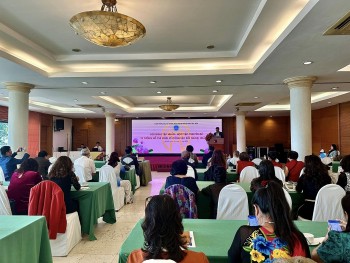 | Workshop on Studying Ho Chi Minh's Thought on People-to-people Diplomacy The Hanoi Union of Friendship Organizations (HAUFO) hosted a workshop on Ho Chi Minh’s thought on people-to-people diplomacy on November 29. The event brought together ... |
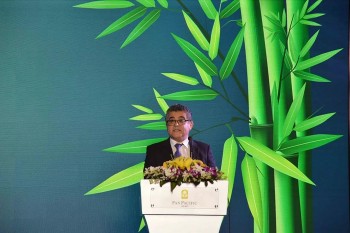 | Palestinian Ambassador Saadi Salama: Fostering Diplomacy Through Culture Saadi Salama, ambassador of Palestine in Vietnam, shared insights on promoting cultural exchanges between nations on the sidelines of a luncheon for ambassadors of the ... |
Recommended
 Viet's Home
Viet's Home
“Global Vietnamese Singing 2025” - Connecting Hearts Longing for Homeland
 Viet's Home
Viet's Home
Vietnam’s People's Public Security Force Actively Contributes to UN Peacekeeping Operations
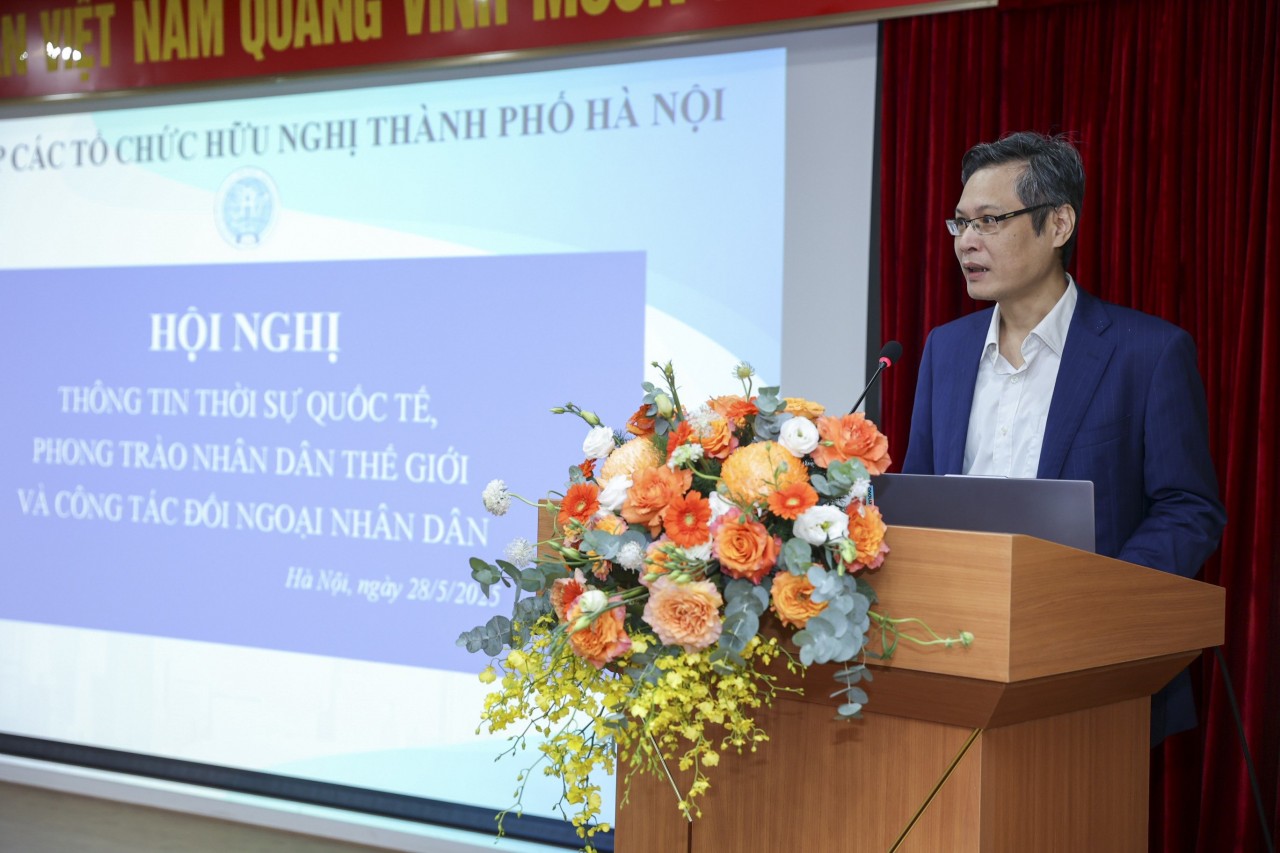 Viet's Home
Viet's Home
HAUFO Enhances Competence of People-to-People Diplomacy Personnel
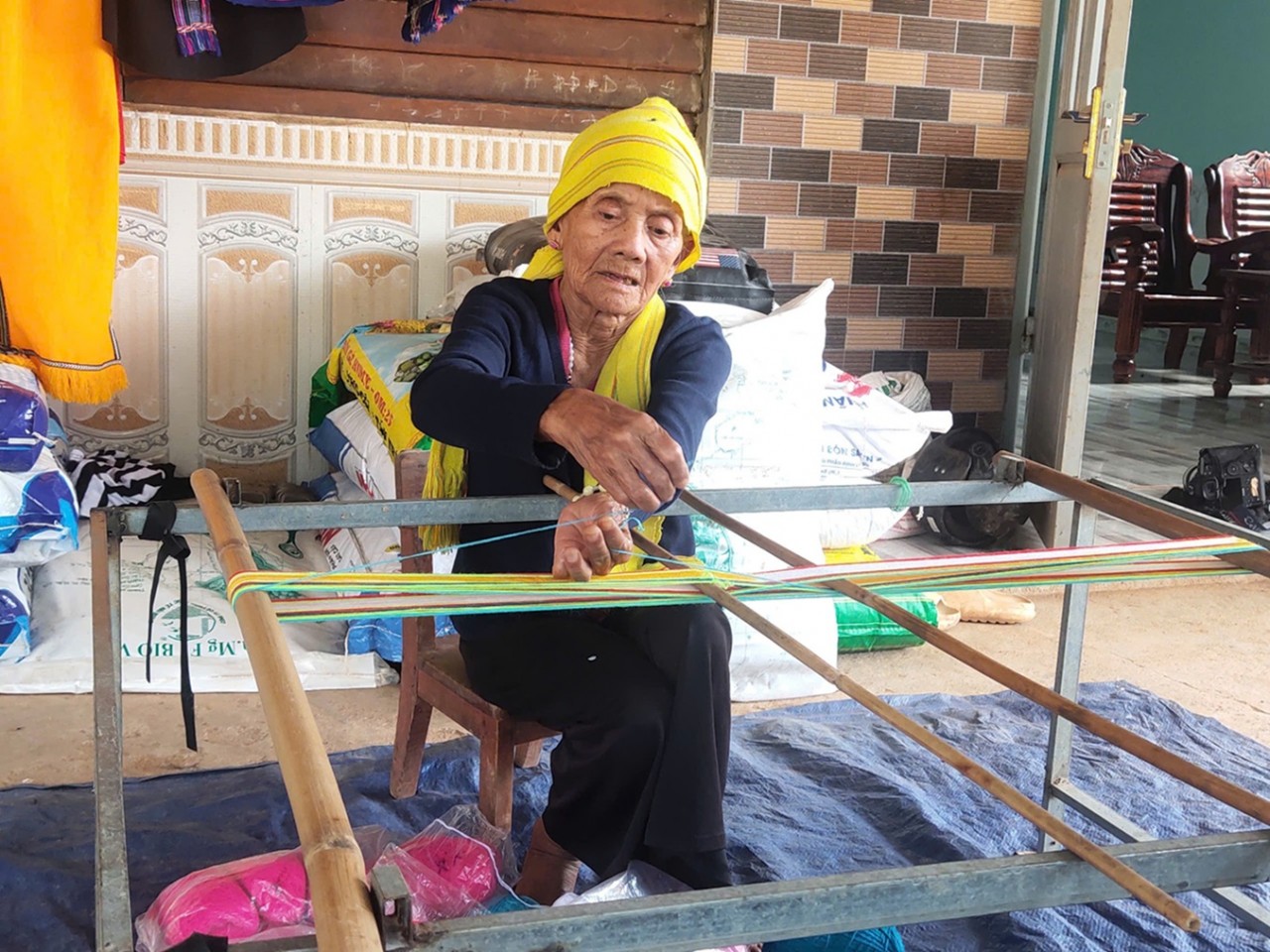 Viet's Home
Viet's Home
Hands that Reserve Da Long Brocade Craft
Popular article
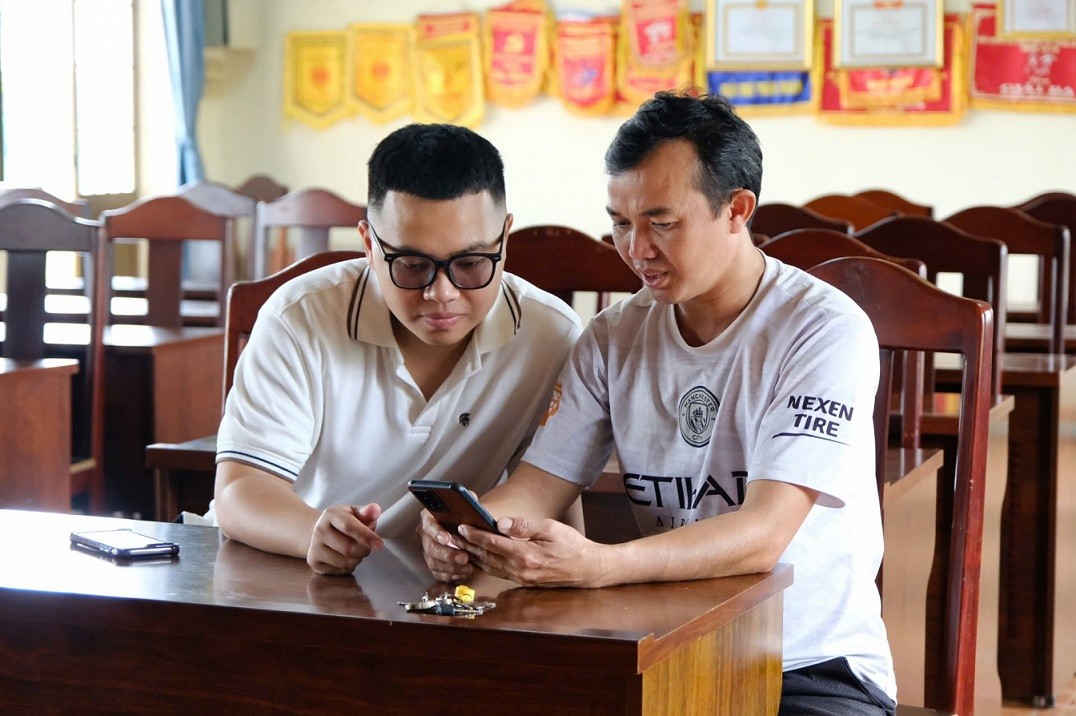 Viet's Home
Viet's Home
Da Rsal – How Digital Transformation Reshape a Poor Commune
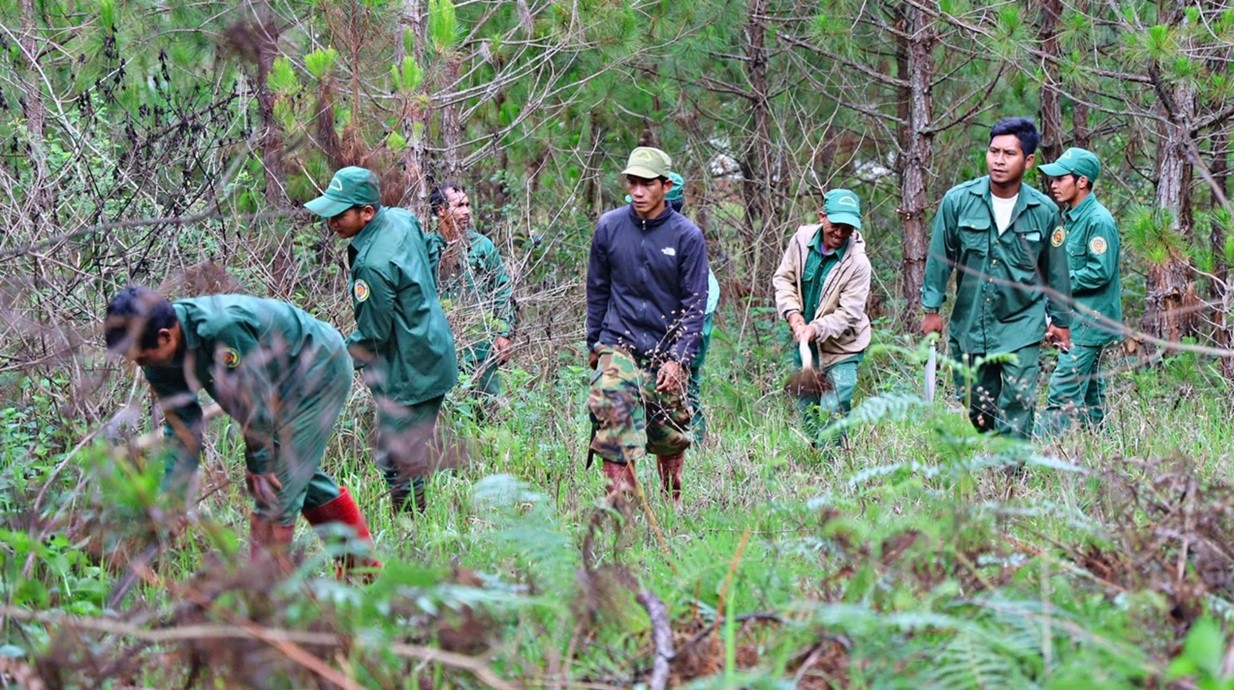 Viet's Home
Viet's Home
Vietnam Classified as “Low Risk” Under the EU Anti-Deforestation Regulation
 Viet's Home
Viet's Home
Vietnamese Architect Wins the Diversity in Architecture Award 2025
 Viet's Home
Viet's Home



